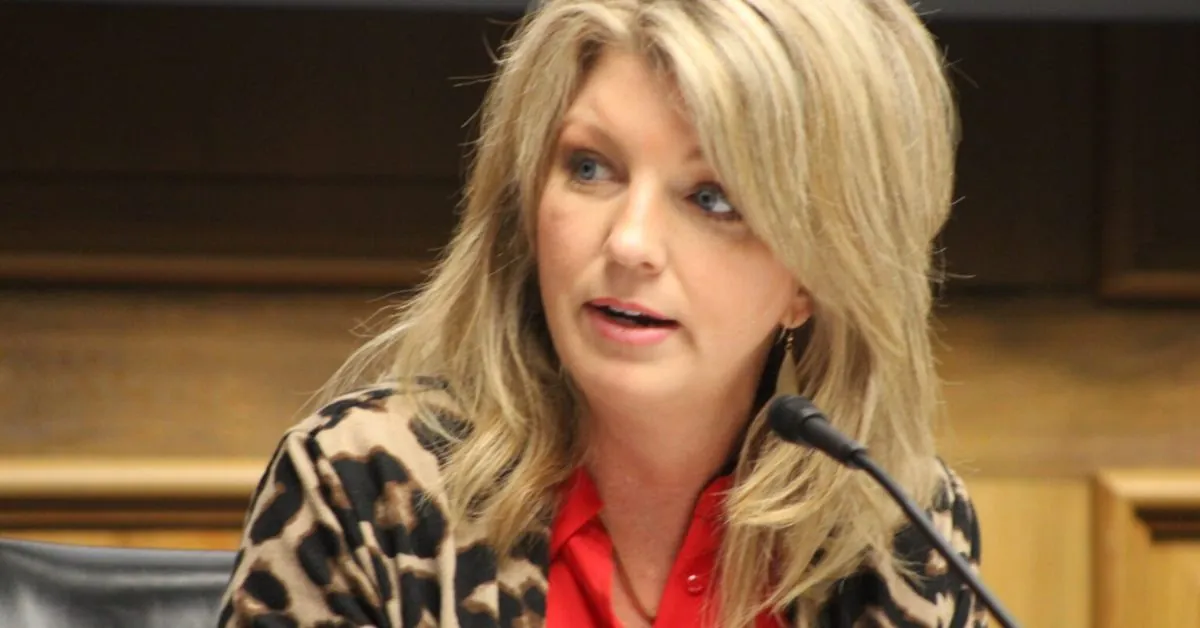During a special tax-policy session, Louisiana lawmakers are quietly advancing legislation that could lead to the transfer of more minor youth to adult jails.
On Thursday, the Louisiana Senate’s Judiciary C committee voted 4-1 in favor of a state constitutional amendment that would eliminate restrictions on the number of crimes for which minors under the age of 17 could face adult imprisonment.
Senate Bill 2 would allow legislators to create new legislation that would broaden the court’s authority to transfer children—14-, 15-, and 16-year-olds—to adult jails. Children’s advocates are concerned that the measure will further diminish adolescent protections in the criminal justice system.
It also follows a new law signed earlier this year that classifies all 17-year-olds as adults in the criminal court system. The legislation removed district attorneys’ option to send 17-year-olds to juvenile court rather than adult court.
In Louisiana, 15- and 16-year-olds, and in some cases, 14-year-olds, can already face adult jail sentences, albeit for specific crimes. These include murder, attempted murder, manslaughter, rape, armed robbery, kidnapping, aggravated battery, a second or subsequent burglary of an occupied dwelling, and a second or subsequent violation of some narcotics charges.
Sen. Heather Cloud, R-Turkey Creek, sponsored a constitutional amendment that would remove that exact item from the constitution’s juvenile justice provision. Instead, if lawmakers enact new legislation, she wants to include language that allows a youngster to face adult charges for “any crime.”
Instead of a simple majority, a two-thirds majority of both legislative houses would need to approve any new laws before they could take effect.
The implementation of the amendment itself faces several challenges. It requires two-thirds support in both the Senate and the House of Representatives. Voters must then approve it in a statewide election, which might take place in late March or November of 2025.
At Wednesday’s session, Cloud described her amendment as a modest tweak that will “not change the law.” Advocates for children and the incarcerated strongly disagreed with this sentiment.
“It’s a real profound social failure when we have to give up on kids,” said Michael Cahoon, speaking on behalf of the Promise of Justice Initiative, an advocacy organization that opposes the bill.
Gov. Jeff Landry is in favor of the amendment, but on Thursday, both his administration and Cloud were unclear about the expanded categories of crimes that could result in sending children to adult court.
During the hearing, Cloud voiced concerns about the current inability to charge adolescents with carjacking as adults. However, she later advised her colleagues to refrain from using carjacking as a justification to support the measure.
Chris Walters, the governor’s criminal justice policy adviser, told legislators that current constitutional constraints made it difficult to punish minors adequately for drive-by shootings, arson, and assaults in state juvenile justice facilities.
However, Kristen Rome, executive director of the Louisiana Center for Children’s Rights, stated that district attorneys who want to transfer teens to adult courts for the crimes Walters and Cloud described at the hearing can already do so.
Rome asserts that the current constitutional constraints allow for the charging of younger teenagers who commit carjackings with armed robbery, just as adults would. She added that youth who participate in drive-by shootings might already face adult charges of murder or attempted murder.
Terry Landry Jr., a lobbyist for the Southern Poverty Law Center, urged legislators to postpone the constitutional amendment until more was known about the consequences of immediately sending 17-year-olds to the adult criminal system.
The newly passed law also presented itself as a tool to address violent acts committed by out-of-control teenagers. However, Landry Jr., unrelated to the governor, cited a recent ProPublica and Verite News article that showed more than 70% of 17-year-olds imprisoned as adults under the new law in East Baton Rouge, Jefferson, and Orleans parishes faced charges for nonviolent crimes.
The transfer of 17-year-olds from juvenile to adult court earlier this year is already putting a strain on Louisiana sheriffs.
While Louisiana state law may treat a 17-year-old as an adult in criminal proceedings, the federal government does not. To comply with federal law, sheriffs must keep anyone under the age of 18 separate from adult inmates and provide educational programs.
Sheriffs have claimed that they do not have enough jail space or resources to meet federal regulations. Some are investing financial resources to relocate the 17-year-olds to a specific facility in Jackson Parish, with the aim of avoiding any violations of federal or state laws.
It’s unclear how local authorities feel about Cloud’s idea.
The Louisiana District Attorneys Association and the Louisiana Sheriffs Association did not speak or attend Wednesday’s hearing on Cloud’s measure. As two of the Capitol’s most prominent lobbying groups, they frequently weigh in on criminal justice legislation that directly affects their respective memberships.
The Republican-dominated Senate committee approved Cloud’s bill despite the uncertainties. Democrats account for almost one-third of the Louisiana Senate, but only one of the seven senators on the Judiciary C committee.
Sen. Regina Barrow of Baton Rouge is the committee’s only Democrat, and she voted no on Cloud’s plan. She raised concern about the “law and order” approach to youth discipline.
“I do not believe kids are born bad. I just don’t,” she said.







Leave a Reply